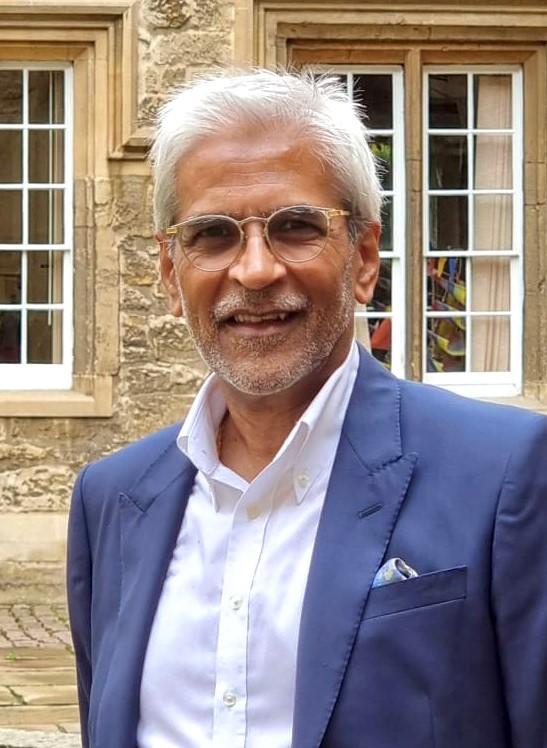The NIHR Oxford Biomedical Research Centre (BRC) has sponsored a talk looking at how inclusion and diversity can be supported in clinical trials.

The talk by Professor Mahendra Patel was organised a talk by Oxford University Hospitals BAME staff network as part of Race Inclusion Week.
Professor Patel is a global leader in the world of pharmacy and professor of pharmacy in the UK, USA, and previously Malaysia. He the founding member and head of the newly established Centre for Research Equity at the University of Oxford. He was made Officer of the British Empire (OBE) in 2022 for his outstanding contributions to pharmacy.
Professor Patel is Diversity and Inclusivity Lead at the University of Oxford’s Primary Health Care Clinical Trials Unit and has played a key role in expanding the diversity of people taking part in the PRINCIPLE and PANORAMIC trials, two national priority COVID studies investigating treatments in a community setting.
He explained how many official reports had highlighted decades of health inequalities, and these had also been exposed during the COVID pandemic: “These are health inequalities that we are continuing to report about. Where is the dial turning? It’s just not acceptable.”
Traditionally there has been low recruitment to clinical trials from underserved communities, but, Professor Patel said, “through COVID, we’ve been able to shine a light more brightly. How do we build on that?”
He explained why it was vital to have research equity. During COVID it was found that pulse oximeters, which measure levels of oxygen in the blood, worked less effectively in people with darker skin. “The very people who were disproportionately adversely affected by COVID were less likely to get urgent interventions.”
Another example was that some medications used to prevent heart attacks may be 30 percent less effective in people of South Asian origin – and community in which cardiovascular disease is more prevalent.
Professor Patel urged researchers not to adopt a one-size-fits-all approach, given the heterogeneity of BAME people, and used the example of vaccine hesitancy. Whereas members of the Black African community were 7.4 times more likely not to have had their COVID vaccine than white British people, the Indian community were just 1.7 times more likely to be unvaccinated – a figure that is lower that of the non-British white people.
Professor Patel then explained how he had been able to enhance the inclusivity of PRINCIPLE and PANORAMIC, ensuring that these trials were open to as many people as possible.
This entailed using university communities, primary care and NHS staff organisations, charities, faith groups, local community groups and the media to reach people who would not traditionally take part in trials.
Places of worship became very important for telling people about the trials. There was a lot of mistrust of government messaging and the ability to talk to people in a language they would understand was hugely beneficial. A day after worshippers at the Neasden temple – the largest Hindu temple in Europe – were told about PRINCIPLE, there was a threefold increase in the number of people visiting the trial website.
Equally, the research team worked with the Muslim Council of Britain and the British Islamic Medical Association to develop messaging that was then shared at Friday prayers.
The trial also used celebrities and influencers such as Mr Motivator and Anne Welsh to increase outreach.
“Having a trial that you know about, the choice becomes yours whether you want to join or not,” Professor Patel said.
Dr Lorna Henderson, the Oxford BRC’s lead for Equality, Diversity and Inclusion, said: “The NIHR and Oxford BRC are committed to improving inclusion and diversity in the research we support. It’s a fundamental principle that our research should be representative of the communities it seeks to help, and that means recruiting more people from underserved communities.
“Professor Patel’s talk has been an inspiring reminder of the need to do more achieve greater equality and inclusion in our research, but also of the practical steps we can take to achieve it. A key element of our EDI strategy is about working in partnership and we are particularly pleased to support the work of the OUH BAME staff network.”